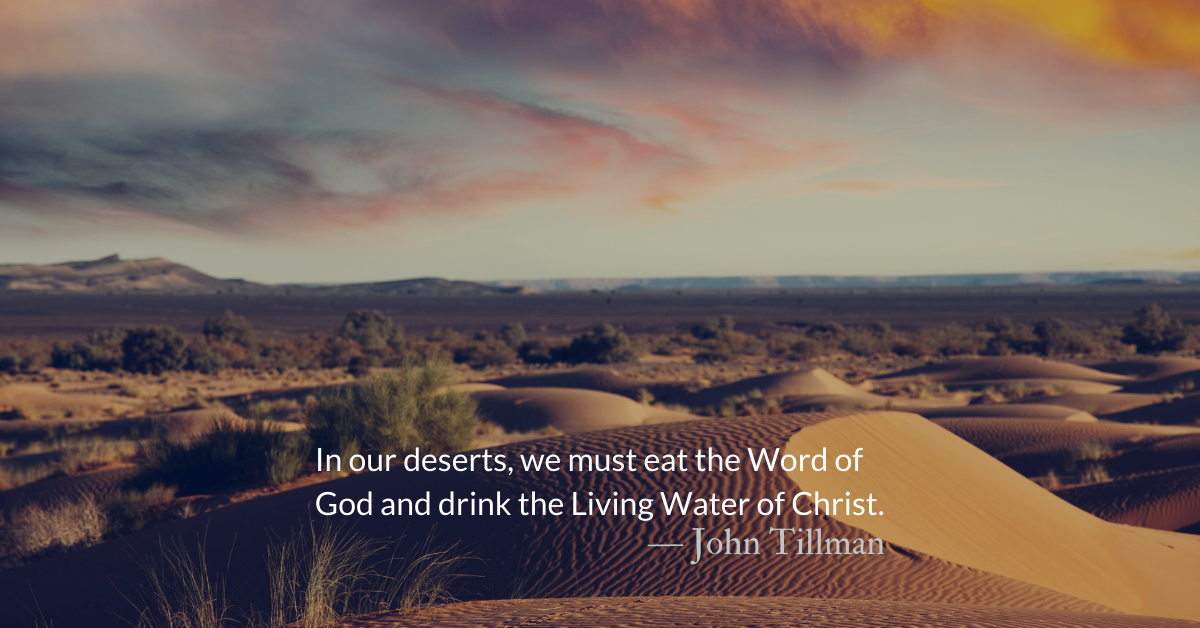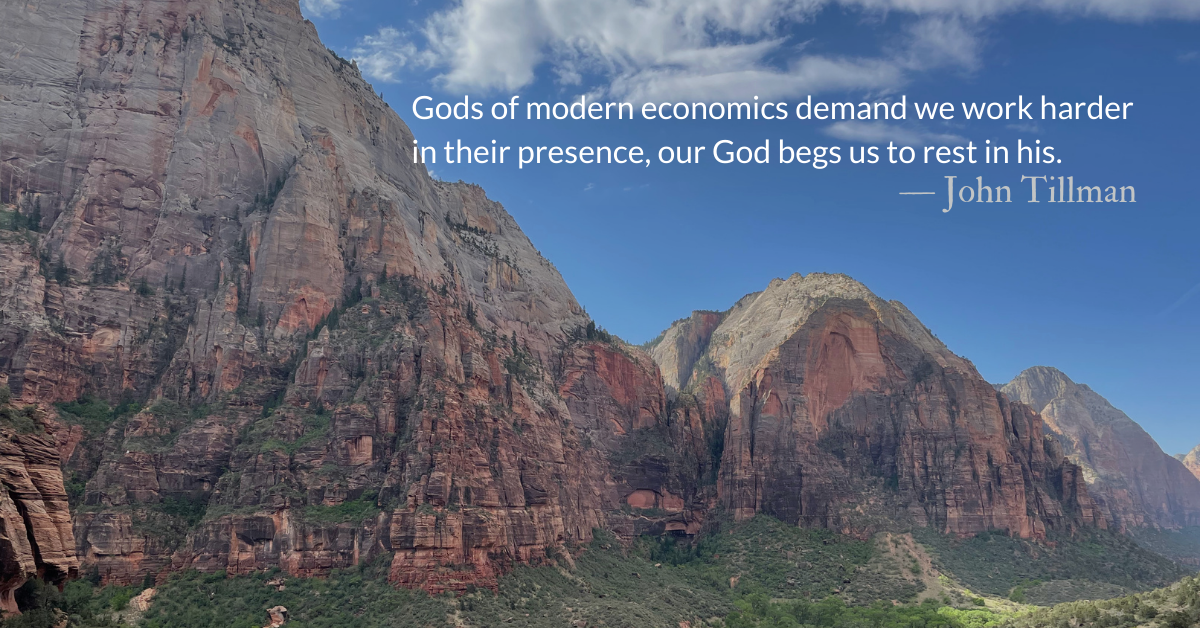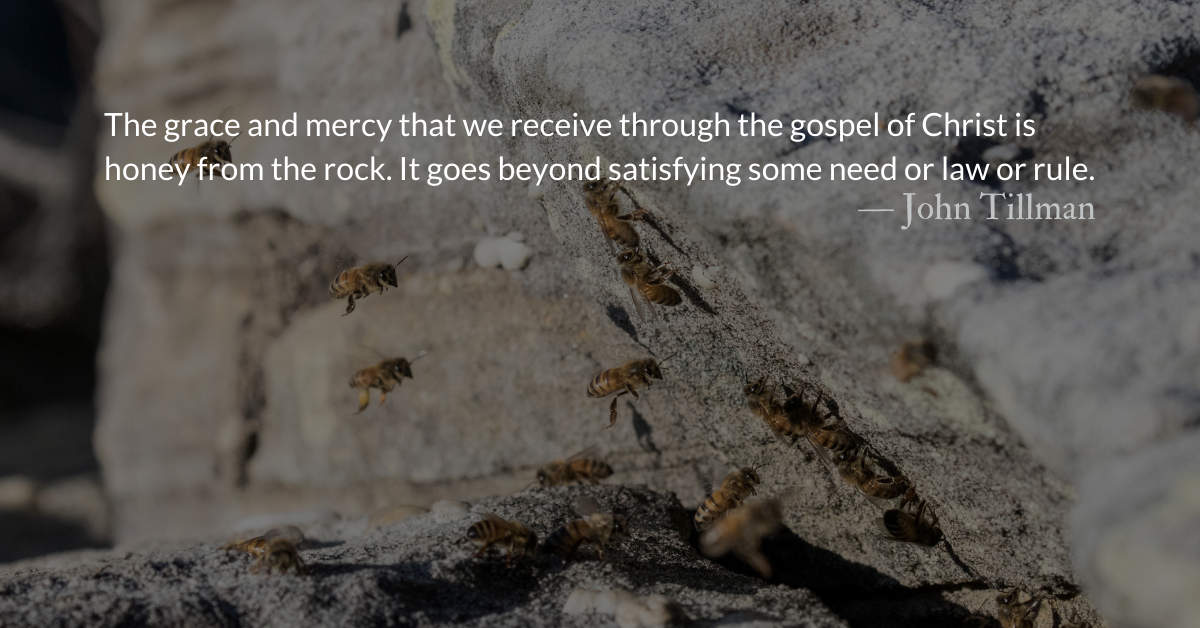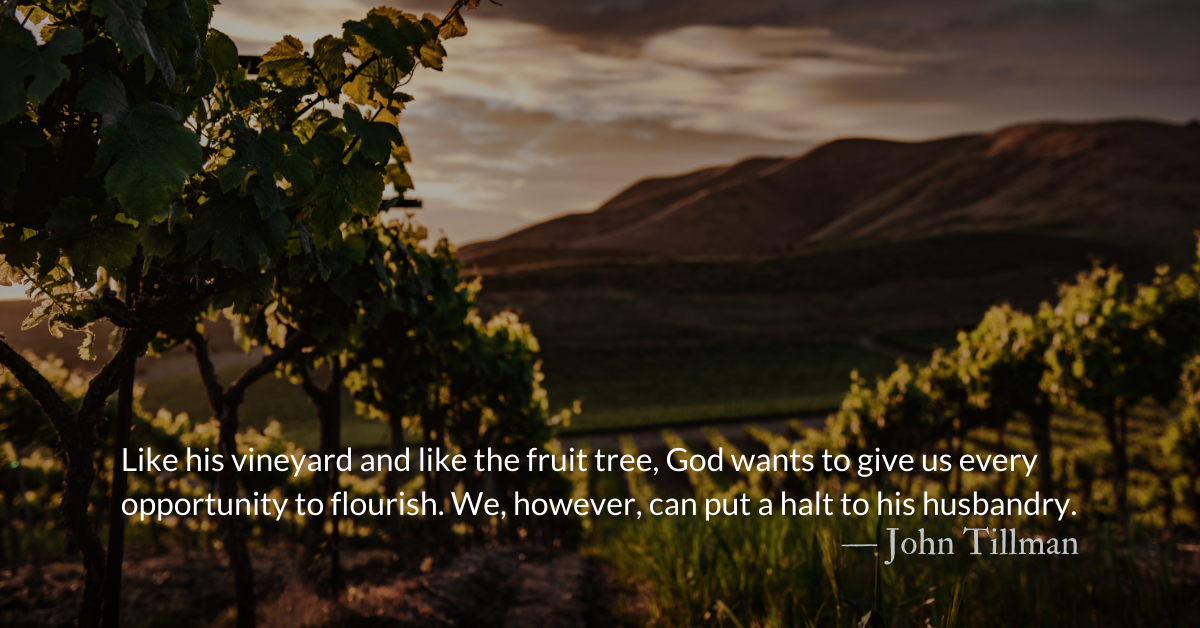Scripture Focus: Deuteronomy 8.3
He humbled you, causing you to hunger and then feeding you with manna, which neither you nor your ancestors had known, to teach you that man does not live on bread alone but on every word that comes from the mouth of the Lord.
Psalm 91.11-13
For he will command his angels concerning you
to guard you in all your ways;
they will lift you up in their hands,
so that you will not strike your foot against a stone.
You will tread on the lion and the cobra;
you will trample the great lion and the serpent.
Reflection: Quotations from the Desert
By John Tillman
Jesus and Satan both quote from our readings today during the temptation of Christ. Satan quotes Psalm 91, telling Christ that the angels would hold him up and would shield him from harm. The words are accurately quoted, and the psalm does claim that God will miraculously aid those he loves. However, the meaning of the verse is twisted.
From the temptations in the garden to the temptations of Jesus and his followers, Satan encourages us to misapply and misinterpret God’s words. In the garden, he says, “Did God really…,” minimizing God’s provision. Standing on top of the Temple, he says God, “will command his angels,” exaggerating God’s provision.
Commenting on Satan’s use of scripture, John Piper wrote, “What makes Satan happy is when he can get Christians to believe that Proverbs 15:6 justifies the accumulation of wealth in a world of hunger; that 2 Thessalonians 3:10 abolishes charity; that Romans 9:16 makes evangelism superfluous.”
It is significant that Satan stops his quotation of the Psalm before the verse about himself: “You will tread on the lion and the cobra; you will trample the great lion and the serpent.” He is, after all, speaking to the one destined to do the trampling.
That brings us to Christ’s quotation, in which Moses is reminding the Israelites of the purpose of the manna in the desert. Manna wasn’t a backup plan. Israel’s hunger and God’s provision was a divine plan teaching his children dependence upon God and not the wealth of the land.
Christ and the Israelites weren’t hungry in the desert for no reason. Nor are we.
Christ demonstrated that he mastered the lessons of the desert that Israel failed to learn. He demonstrated that he learned the lessons of the Garden that Adam failed to learn. He locked eyes with the serpent upon whose head his heel would soon step down with infinite crushing weight.
Connecting to God’s Word and relying on it for our sustenance, for our source of life, is a consistent theme of scripture and the purpose of spiritual disciplines. In our deserts, we must eat the Word of God and drink the Living Water of Christ. We will be fed with Honey from the Rock.
What we lost in the garden, Christ has regained.
What we failed in the desert, Christ has won.
What we cannot bear, Christ has carried.
What we cannot complete, Christ has finished.
“Lord God Almighty
Came as a preacher man
Fastin’ down in the wilderness
Quotin’ Deuteronomy to the Devil
And then He set His face like a flint
Toward Jerusalem…”
— Quoting Deuteronomy to the Devil, Rich Mullins
Divine Hours Prayer: The Greeting
I am bound by the vow I made to you, O God; I will present to you thank-offerings;
For you have rescued my soul from death and my feet from stumbling, that I may walk before God in the light of the living. — Psalm 56.11-12
– Divine Hours prayers from The Divine Hours: Prayers for Springtime by Phyllis Tickle
Today’s Readings
Deuteronomy 8 (Listen – 2:58)
Psalm 91 (Listen – 1:39)
This Weekend’s Readings
Deuteronomy 9 (Listen – 5:06), Psalm 92-93 (Listen – 2:09)
Deuteronomy 10 (Listen – 3:12), Psalm 94 (Listen – 2:08)
Read more about Our Opportunistic Opponent
We can resist Satan and he will flee. But just as he left Jesus in the wilderness, he is only waiting for an opportune time to return.
Read more about There is a Fountain Filled with Blood — Lenten Hymns
When we are at our lowest of lows, Jesus extends his hand to rescue us. He has been there.











